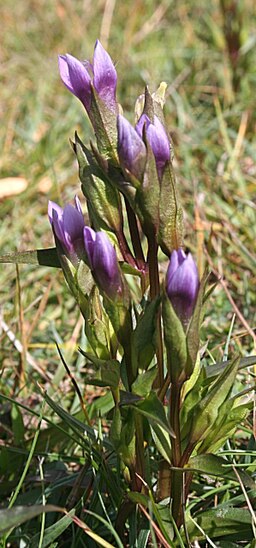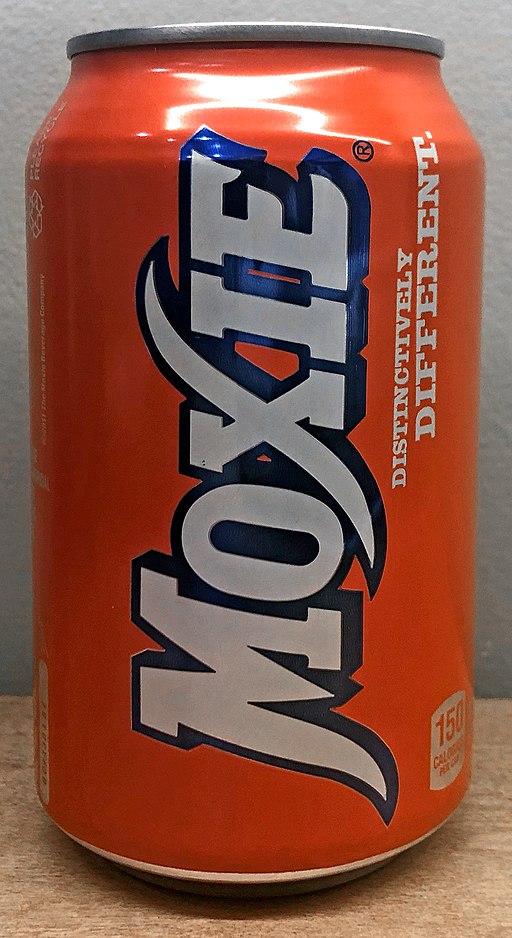While gentian root has been used traditionally as a tonic and digestive aid, its strong bitter flavor and potential medicinal properties make it a unique herb in the world of natural health.

Gentian Flowers
Health Benefits of Gentian Root:
- Digestive Aid: Gentian root is widely known for its bitter qualities which can stimulate digestive function. The bitterness triggers taste receptors, which in turn stimulate enzyme production and bile flow, enhancing digestion.
- Liver and Gallbladder Stimulation: By promoting the flow of bile, it can help in liver detoxification processes and support gallbladder function.
- Antimicrobial Properties: Some studies suggest that gentian root has antimicrobial properties, although more research is needed to confirm these effects.
While still used in herbal medicine, gentian root has also found a place in the beverage industry as a flavoring agent in bitters, liqueurs, and aperitifs due to its distinctive taste.
Gentian Root’s Folk Uses:
In traditional European folklore, gentian root was believed to have protective properties. It was often used in amulets to ward off evil spirits. Its bitter taste was thought to be a counteraction to poison and malign forces.
Other folk uses included topical use on skin tumors, decreasing fevers, and treatment of diarrhea. Its ability to increase digestive function, including production of stomach acid, has been validated in modern times.
Here is what Wikipedia reports:
It was considered especially useful in states of exhaustion from chronic disease and in all cases of debility, weakness of the digestive system and lack of appetite. It was also considered one of the best fortifiers of the human system, stimulating the liver, gall bladder and digestive system, and was thought to be an excellent tonic to combine with a purgative in order to prevent its debilitating effects.
Taste:
The taste is distinctly bitter, sometimes described as earthy or pungent. This strong flavor is what contributes to its digestive benefits..

Anne Burgess / Autumn Gentian (Gentianella amarella)
Origin:
Gentian root is native to the mountainous regions of Europe and parts of Asia. It grows in grassy alpine and sub-alpine meadows where the soil is well-drained and light. It is also cultivated in North America.
Plant Characteristics:
The root comes from plants in the Gentiana genus, most commonly from species like Gentiana lutea. These plants are renowned for their vibrant blue flowers, although the roots are what’s primarily used in herbal remedies.
Size: The Gentiana lutea species can grow to about 1 to 1.5 meters in height.
Flowers: The plants bear trumpet-shaped flowers, usually bright blue, although they can also be yellow, white, or red.
Roots: The roots are large and thick, with a yellowish-brown exterior and a yellow interior.
It is the root that is used medicinally.
Potential Side Effects and Precautions:
Like any herbal remedy, Gentian root should be used with knowledge and caution. Always consult with a healthcare professional before starting any new herbal treatment, especially if you have pre-existing conditions or are taking medications.
- Blood Pressure: Gentian root may lower blood pressure*, so especially those with hypotension (low blood pressure) should not take it.
- Interactions: It can interact with certain medications, so it’s important to consult with a healthcare provider before using it, especially if you are on medication.
- Pregnancy and Breastfeeding: It’s not recommended for use during pregnancy or breastfeeding due to insufficient safety data.
- Dosing: The correct dose of gentian root can depend on several factors such as the user’s age, health, and several other conditions. It’s important not to exceed recommended doses.
- Chronic Use: Long-term use can lead to tolerance and reduced effectiveness. It’s also not recommended for those with gastric or duodenal ulcers.
- NOTE: This root should not be used by people suffering from excessive stomach acid, heartburn, stomach ulcers, or gastritis.
Dosages of Gentian Root
Gentian root can be taken as a supplement, tincture (1–3 grams daily), as a fluid extract (2–4 grams daily), or as the whole root (2–4 grams daily).
Constituents:
The root contains some of the most bitter substances known, particularly the glycosides gentiopicrin and amarogentin.
The taste of these can be detected even when diluted 50,000 times.
Besides stimulating secretion of saliva in the mouth and hydrochloric acid in the stomach, gentiopicrin may protect the liver. And, the liver is an organ worthy of protection!
The liver filters all of the blood that leaves the stomach and intestines. It processes our blood, breaking down, balancing, and creating nutrients, as well as metabolizing medications into forms that are easier to use or harmless for the rest of the body.
Speaking of taste…
Moxie with Gentian Root in the USA…

F. M. Archer, Public domain, via Wikimedia Commons
Moxie was one of the first mass-produced soft drinks in the United States and has a notable place in the history of American beverages. Created in 1876 by Dr. Augustin Thompson in Lowell, Massachusetts, it contains gentian root.
Moxie was originally marketed as a medicinal tonic called “Moxie Nerve Food.”
Thompson claimed that it contained an extract from a rare South American plant, which is thought to have been gentian root, though the exact formula has always been a closely guarded secret.

Vermont, CC BY-SA 4.0, via Wikimedia Commons
Here are some interesting points about Moxie:
- Taste: Moxie is distinctive for its strong, bitter flavor, which comes from its gentian root content. The taste is often described as earthy and less sweet than most other soft drinks.
- Popularity: In the early 20th century, Moxie was more popular than Coca-Cola. Its success was due in part to extensive advertising and the claimed health benefits of the beverage.
- Transition from Tonic to Soft Drink: Although it began as a medicinal tonic, Moxie transitioned into the soft drink category as the FDA began regulating medicinal claims in beverages. It was rebranded as a soft drink and continued to be sold as such.
- Cultural Impact: Moxie has made a lasting cultural impact, especially in New England. It has inspired the word “moxie” in the English language, meaning the ability to face difficulty with spirit and courage.
- Modern Day: Moxie continues to be produced today, though it is now owned by The Coca-Cola Company. It retains a cult following, especially in Maine, where it was named the official state soft drink.
- Collectors’ Item: Due to its long history and distinctive branding, vintage Moxie memorabilia has become a collector’s item.
The inclusion of gentian root is a significant part of what gives Moxie its unique flavor profile and historical reputation as a “nerve food.”
Today, people either love or dislike it for its unique and bitter flavor, and it remains a nostalgic beverage with a dedicated fan base.
